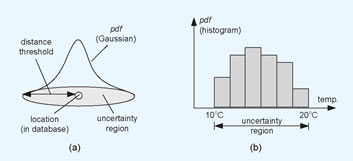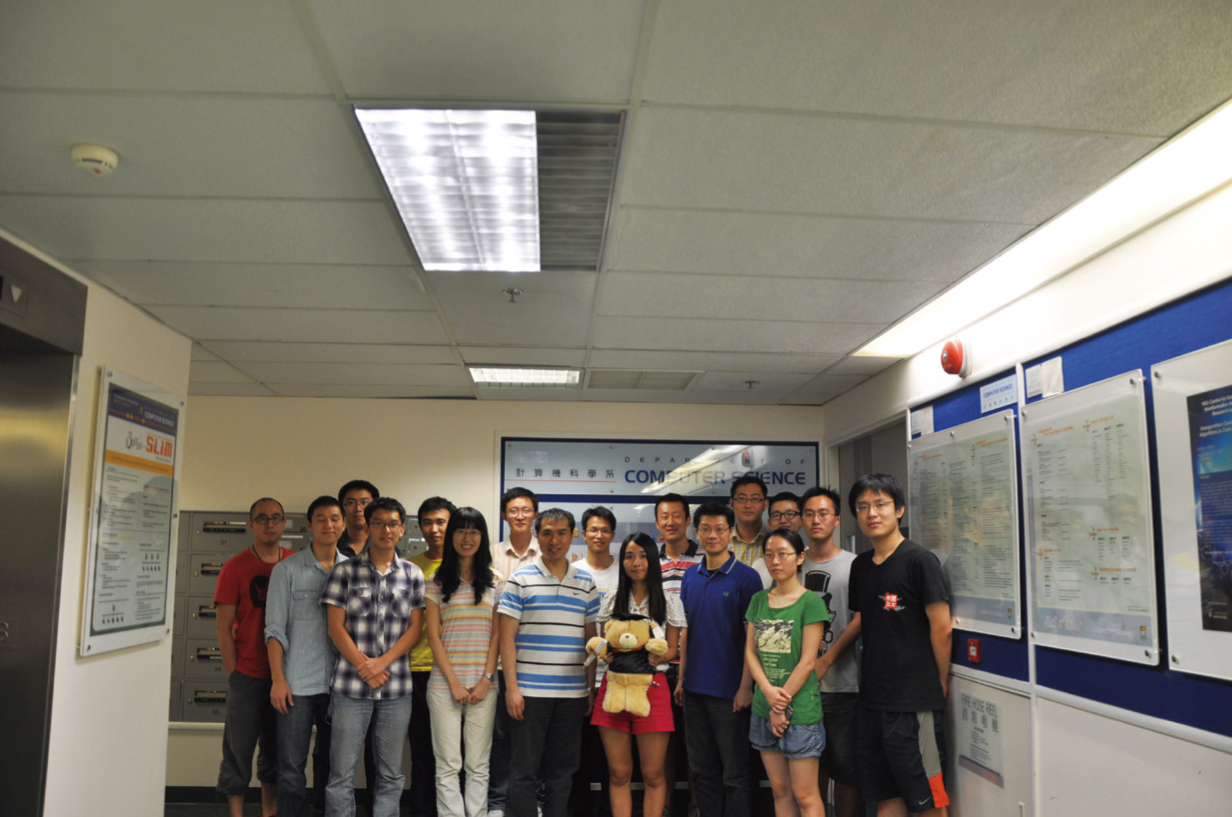
Location and sensor uncertainty
Recent advances in positioning technologies
(e.g., GPS, RFID, and cellular systems) have led to a tremendous growth in the demand for
location-based services. A large class
of these applications (e.g., transportation control systems) requires the long-standing,
continuous and real-time tracking of locations of numerous mobile objects (e.g.,
cellular-phone users). One common problem faced by these applications is that location data
are inherently uncertain, due to factors such as inaccurate sensing device measurements,
limited sensing rates, and network latency. Services that base their decisions on these data
must take this error information into account or else risk the degradation of their quality and
reliability. Another problem is the requirement that mobile objects constantly report their
locations places a heavy burden on both their battery life and the network bandwidth.
In order to handle continuous query
processing of imprecise data, we have proposed to study
the continuous probabilistic query (CPQ). An example of such a query would be one that
requested a system to “report the identities of our soldiers who are inside the enemy base for
the coming 24 hours”. These queries evaluate inexact location data and provide statistical
confidence guarantees for the answers. They are expensive to execute, since keeping
track of changes in location data requires that their
results be constantly recomputed. To reduce these re-evaluation efforts, we develop a new
solution that exploits the fact that the new query answers can often be incrementally
derived from the previous results, and do not require a complete query evaluation. We
further study a distributed approach, where some portion of CPQ processing is deployed
to the mobile objects, in order to reduce the cost of the mobile objects for reporting location
data. We have also extended our approach to support a multi-user environment. We validate
our approach with a detailed experimental evaluation, and develop an open-source
system prototype. Our research outcome has significant importance for performing
high-quality and real-time traffic monitoring in Hong
Kong. The output of this project can potentially be used by other data streaming
applications.
|
|
 The HKUCS Database Research Group
The HKUCS Database Research Group
Our project combines the techniques used in the area of data uncertainty and data stream
management. The results of this research not only help to reduce the workload of the
location server, but also the use of resources (e.g., energy and network bandwidth). Although this project considers location
uncertainty, our techniques can potentially be extended to address other types of data
streams (e.g., stock ticket prices, sensor, and RFID data). We have published five top
journal papers (including VLDBJ, IEEE TKDE and IEEE TMC), eight top conference papers
(including SIGMOD, VLDB, ICDE, SIGKDD), and one invited paper. The VLDBJ paper has
been awarded the Research Output Prize by the Department of Computer Science, HKU,
in 2010.
Our result will be highly practical to Hong
Kong SAR and China. A transportation control system for traffic monitoring and
analysis purposes can be built on top of our prototype.
Our system prototypes won two prizes (Champion and First Runner-Up) in
HKUCS Final Year Project competitions.
Prof Reynold Cheng
Department of Computer Science
The University of Hong Kong
ckcheng@cs.hku.hk
|
